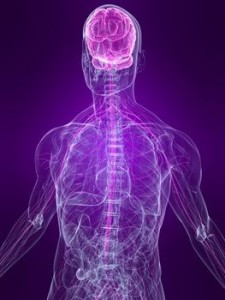
A Neurotransmitter serves the autonomic nervous system (ANS) on both its subdivisions known as sympathetic and parasympathetic divisions. These divisions are responsible of controlling a wide variety of activities in our body. Parasympathetic controls the salivary gland, sweat gland, and other viscous organs, whereas, sympathetic regulates the activities of smooth muscles and glandular secretions, such as respiration, circulation, digestion, body temperature, and metabolism.
Sympathetic and parasympathetic have contrasting effects to each other. Therefore, when the sympathetic increases blood pressure and expends energy (usually known as the fight or flight condition), the parasympathetic will lower blood pressure and conserve energy.
Acetylcholine is a neurotransmitter that acts on cholinergic nerves found in the peripheral nervous system and central nervous system. The normal functioning of Acetylcholine is very important to maintain a healthy balance in our lives. It’s imbalance has been known to cause diseases such as glaucoma (affecting the eyes) , Parkinson’s disease (weak joints and balance), Alzheimer’s disease (memory loss), and Myasthenia Gravis ( autoimmune neuromuscular disease).
The drugs used to maintain this balance of having the right amount of functioning neurotransmitters are called parasympathomimetic and sympathomimetic (those drugs are mimic acetylcholine for more stimulation) and parasympatholytic and sympatholytic (those drugs are block the action of acetylcholine to stop the over stimulation).
Other neurotransmitters that are vital on the ANS are norepinephrine and epinephrine, which act on adrenergic nerves. Epinephrine, also known as adrenaline, is a hormone and a neurotransmitter that plays an important role in altering the blood glucose levels, thus used by diabetes patients to control and maintain the right balance. It works by increasing the heart rate, constricts blood vessels, dilates air passage. Chemically, epinephrine is a catecholamine produced by adrenal gland.
Norepinephrine is a stress hormone and neurotransmitter that increases heart rate and triggers the release of glucose. It also increases the brains oxygen supply.
Neurotransmitters send chemical signals that play a major role on brain communication with the rest of our body.
Image: http://www.buzzle.com/articles/peripheral-nervous-system.html